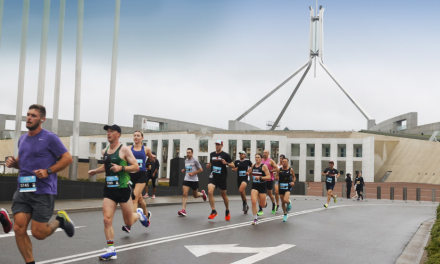“I drink caffeine because I’m tired and I’m tired because I can’t sleep because I drink too much caffeine because… well, I’m tired.”
Does this sound all too familiar? Trust me, you are not alone!
A recent study, published in February 2017, found that caffeine intake is associated with altered sleep quality. Researchers determined that it can be difficult to untangle caffeine use due to daytime sleepiness or daytime sleepiness due to disrupted sleep caused by caffeine.
Caffeine is the most widely consumed psychoactive substance in the world. It can be found in a wide variety of consumables, including coffee, tea, energy and soft drinks, some medicines, dietary supplements and chocolate. The other ingredients in these foods and drinks can also complicate the effects of caffeine, as sugar, dairy and preservatives also influence the way your body feels.
There are endless pros and cons to consuming caffeine, though little consensus within the medical community on whether or not caffeine consumption should be recommended. Numerous studies have proven or disproven the links caffeine has to a number of physical and mental benefits.
The government’s recommended daily intake of caffeine is 400mg, roughly 3-4 cups of standard coffee a day. This dosage is generally considered harmless but everybody has a slightly different reaction to caffeine as it affects the brain, heart, gastrointestinal system and metabolism.
It is because every body is different that nobody can tell you how much caffeine is okay for you to consume. Importantly, understanding what effects caffeine can have on your mind and body are integral before making an informed decision about caffeine consumption.
Consuming caffeine-rich food and drinks has been associated with lowering the risk of heart disease, diabetes, Parkinson’ disease, Alzheimer’s disease, stroke, and cancer. Consuming 2-3 cups of caffeine a day has also been shown to decrease the risk of overall death, what doctors and scientists refer to as ‘all-cause mortality’.
The effects of caffeine kick in between 15-45 minutes after consumption and can last up to several hours. Caffeine stimulates the release of dopamine, a neurotransmitter which is responsible for alertness and productivity. This enhances the ability to focus and be attentive, improving short-term memory and speeding up reaction times.
As caffeine is a stimulant, it can increase adrenaline levels in your blood, boost endurance and speed in workouts, and speed up metabolism, resulting in a few more calories burned throughout the day.
Although most of these side-effects sound great, most of these positive effects have a downside.
High intake of caffeine can lead to the production of cortisol, the hormone linked to stress and weight gain. As cortisol release is thrown off, lasting effects of irritability, restlessness, fatigue, and insomnia can set in.
Caffeine can exacerbate anxiety, panic attacks, heart palpitations, and arrhythmias in people susceptible to them, as well as interfere with calcium absorption, increasing the risk of osteoporosis and bone fractures.
Caffeine is a diuretic, meaning in can increase frequency and amount of urination, and contribute to urgency incontinence. The dehydrating effects can cause wrinkling of the skin and fluctuations in blood sugar which contribute to sugar cravings.
Finally, and importantly, it is important to understand caffeine can produce dependence and caffeine withdrawal is a real syndrome. Withdrawal can cause migraine or tension headaches and abuse symptoms include insomnia, tremors, nausea, vomiting, chest pains, and palpitations.
So, for Canberrans on the go, caffeine is an easy way to get the energy boost needed after a poor night’s sleep. Just be mindful that a poor night’s sleep may have been caused by excess caffeine consumption the previous day and all that buzz now can lead to a low later.






